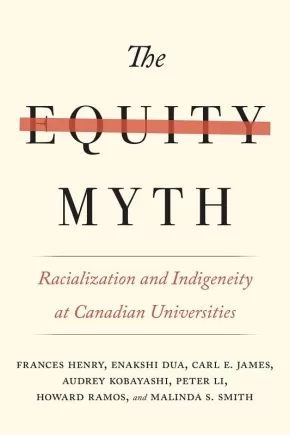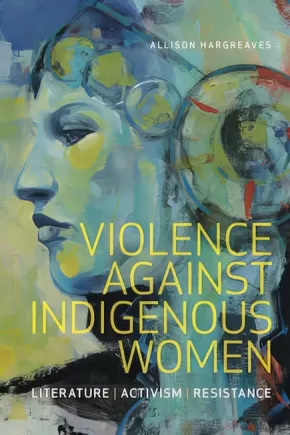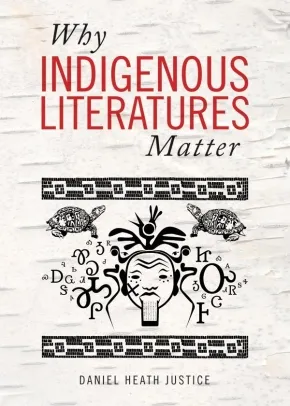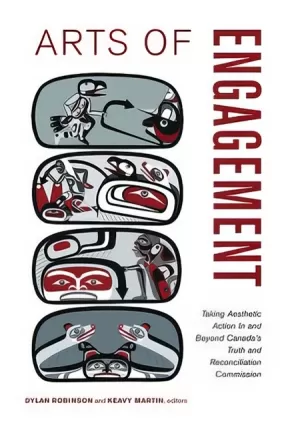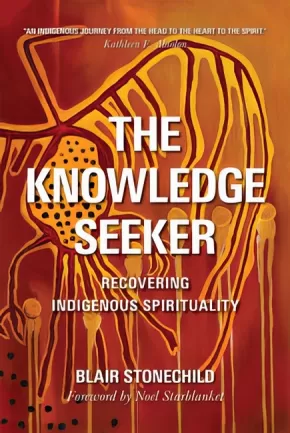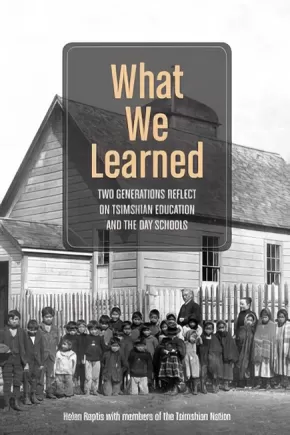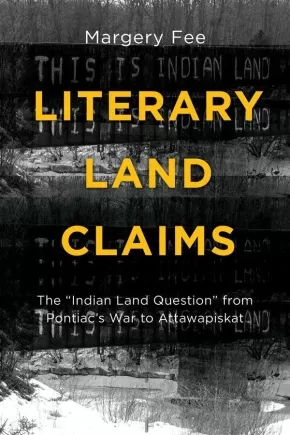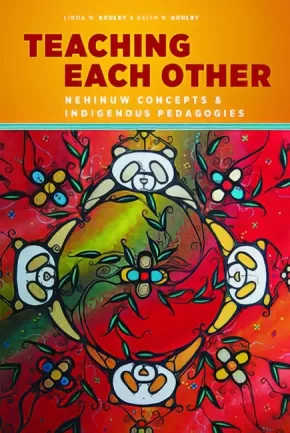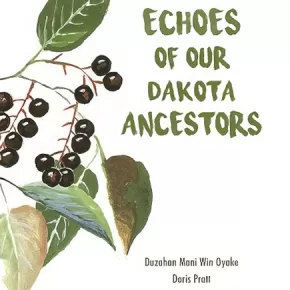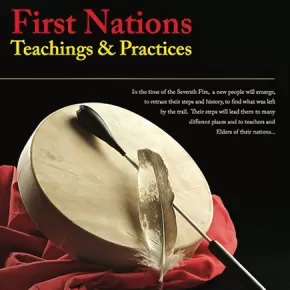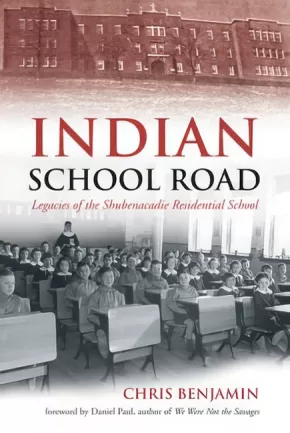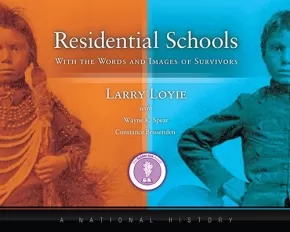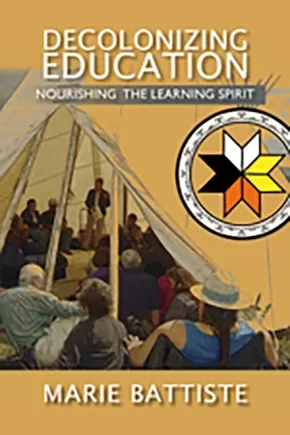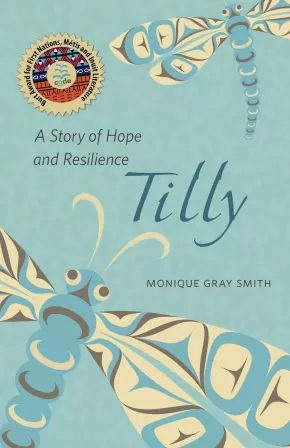Education
Synopsis:
The university is often regarded as a bastion of liberal democracy where equity and diversity are promoted and racism doesn’t exist. In reality, the university still excludes many people and is a site of racialization that is subtle, complex, and sophisticated. While some studies do point to the persistence of systemic barriers to equity and diversity in higher education, in-depth analyses of racism, racialization, and Indigeneity in the academy are more notable for their absence. The Equity Myth is the first comprehensive, data-based study of racialized and Indigenous faculty members’ experiences in Canadian universities.
Challenging the myth of equity in higher education, this book brings together leading scholars who scrutinize what universities have done and question the effectiveness of their equity programs. The authors draw on a rich body of survey data and interviews to examine the experiences of racialized faculty members across Canada who – despite diversity initiatives in their respective institutions – have yet to see changes in everyday working conditions. They also make important recommendations as to how universities can address racialization and fulfill the promise of equity in higher education.
A landmark study on racism in Canadian universities, The Equity Myth shows how the goal of achieving equity in higher education has been consistently promised, but never realized for racialized and Indigenous faculty members. It further reveals that the policies and diversity initiatives undertaken so far have only served to deflect criticism of a system that is doing little to change itself.
The book will be appeal to anyone interested in the issue of equity within the university setting. This includes faculty members from many disciplines; administrators at all levels; students and graduate students; and people interested in equity issues outside of academia.
Reviews
"[G]roundbreaking new research led by York University Professor Emeritus Frances Henry puts Canadian universities under the microscope. This new inquiry … shows that racialized and Indigenous faculty are low in numbers and even lower in terms of power, prestige and influence compared to non-racialized [white, male] counterparts within the university" — Megan Mueller, Manager, research communications, Office of the Vice-President Research & Innovation, York University
"The Equity Myth brings to the surface tensions that racialized faculty widely experience but seldom formally discuss in their workplaces. These include pay inequity, unequal hiring processes, a lack of visibility for racialized faculty in the professoriate, Euro-centric curricula and racial discrimination.
Until now, those tensions have been felt only in the abstract or anecdotally. Statistics Canada does not collect data on racialized minorities as part of the data it compiles on faculty and students at Canadian universities; nor do provincial governments collect such information. There has been recent change on this front from the University of Toronto and Ryerson University, both of which have announced in the past year that they would start collecting race-based data about their students. But no data exists on the effectiveness of university employment equity policies or policies against discrimination, despite their ubiquity across Canadian campuses." — Jackie Wong, University Affairs, November 2017
"The Equity Myth paints a bleak picture in which the hegemonic whiteness and patriarchy of the institution show remarkable resilience through lip service and tokenism. [...]On the other hand, it recommends possible concrete solutions[...]a must-read for anyone interested in the social sciences, in discrimination, or simply in being decent and well-informed human beings." — Sylvie Vrackx, Canadian Literature, May 2019
"This compelling and important text is the first of its kind in Canada. It provides rigorous and informative investigations of the status, representation, and everyday lived experiences of racialized and Indigenous scholars in English-speaking Canadian universities … I recommend this book not only for scholars but also for administrators serious about equity and institutional change." — Annette Henry, David Lam Chair in Multicultural Education and Professor in the Department of Language and Literacy Education and the Social Justice Institute, University of British Columbia
Educator Information
Related Topics: Education, Indigenous Studies, Post-Secondary Education, Race & Ethnicity; Sociology
Table of Contents
Preface and Acknowledgments
Additional Information
392 pages | 6.00" x 9.00" | 6 graphs, 33 tables
Synopsis:
Violence against Indigenous women in Canada is an ongoing crisis, with roots deep in the nation’s colonial history. Despite numerous policies and programs developed to address the issue, Indigenous women continue to be targeted for violence at disproportionate rates. What insights can literature contribute where dominant anti-violence initiatives have failed? Centring the voices of contemporary Indigenous women writers, this book argues for the important role that literature and storytelling can play in response to gendered colonial violence.
Indigenous communities have been organizing against violence since newcomers first arrived, but the cases of missing and murdered women have only recently garnered broad public attention. Violence Against Indigenous Women joins the conversation by analyzing the socially interventionist work of Indigenous women poets, playwrights, filmmakers, and fiction-writers. Organized as a series of case studies that pair literary interventions with recent sites of activism and policy-critique, the book puts literature in dialogue with anti-violence debate to illuminate new pathways toward action.
With the advent of provincial and national inquiries into missing and murdered Indigenous women and girls, a larger public conversation is now underway. Indigenous women’s literature is a critical site of knowledge-making and critique. Violence Against Indigenous Women provides a foundation for reading this literature in the context of Indigenous feminist scholarship and activism and the ongoing intellectual history of Indigenous women’s resistance.
Reviews
“This book makes an important – indeed, urgent – contribution to knowledge about violence against Indigenous women that ought to become required reading for politicians, activists, policy-makers, scholars, writers, and artists engaged in responding to this ongoing crisis.”
— Amber Dean, McMaster University, author of Remembering Vancouver’s Disappeared Women: Settler Colonialism and the Difficulty of Inheritance
"Hargreaves ... examines how stories of individual tragedies have been memorialized in venues such as human rights reports, poems, films, and plays. She convincingly explains that statistics and research projects produced with the best intentions may serve to reinforce the very colonial power dynamics that prevent the emergence of transformative solutions in the struggle to end violence against Indigenous women. ... For those in the field of comparative narrative criticism, it’s a work sure to inspire much discussion, debate, and reflection."
— Publisher's Weekly
Educator Information
This book would be useful for Indigenous Studies, Women's Studies, Literary Criticism, and Canadian Literature courses, or courses where activism is a key theme.
Additional Information
296 pages | 6.00" x 9.00"
Synopsis:
Part survey of the field of Indigenous literary studies, part cultural history, and part literary polemic, Why Indigenous Literatures Matter asserts the vital significance of literary expression to the political, creative, and intellectual efforts of Indigenous peoples today. In considering the connections between literature and lived experience, this book contemplates four key questions at the heart of Indigenous kinship traditions: How do we learn to be human? How do we become good relatives? How do we become good ancestors? How do we learn to live together? Blending personal narrative and broader historical and cultural analysis with close readings of key creative and critical texts, Justice argues that Indigenous writers engage with these questions in part to challenge settler-colonial policies and practices that have targeted Indigenous connections to land, history, family, and self. More importantly, Indigenous writers imaginatively engage the many ways that communities and individuals have sought to nurture these relationships and project them into the future.
This provocative volume challenges readers to critically consider and rethink their assumptions about Indigenous literature, history, and politics while never forgetting the emotional connections of our shared humanity and the power of story to effect personal and social change. Written with a generalist reader firmly in mind, but addressing issues of interest to specialists in the field, this book welcomes new audiences to Indigenous literary studies while offering more seasoned readers a renewed appreciation for these transformative literary traditions.
Awards
- 2019 PROSE Award for Literature
Synopsis:
Arts of Engagement focuses on the role that music, film, visual art, and Indigenous cultural practices play in and beyond Canada’s Truth and Reconciliation Commission on Indian Residential Schools. Contributors here examine the impact of aesthetic and sensory experience in residential school history, at TRC national and community events, and in artwork and exhibitions not affiliated with the TRC. Using the framework of “aesthetic action,” the essays expand the frame of aesthetics to include visual, aural, and kinetic sensory experience, and question the ways in which key components of reconciliation such as apology and witnessing have social and political effects for residential school survivors, intergenerational survivors, and settler publics.
This volume makes an important contribution to the discourse on reconciliation in Canada by examining how aesthetic and sensory interventions offer alternative forms of political action and healing. These forms of aesthetic action encompass both sensory appeals to empathize and invitations to join together in alliance and new relationships as well as refusals to follow the normative scripts of reconciliation. Such refusals are important in their assertion of new terms for conciliation, terms that resist the imperatives of reconciliation as a form of resolution.
This collection charts new ground by detailing the aesthetic grammars of reconciliation and conciliation. The authors document the efficacies of the TRC for the various Indigenous and settler publics it has addressed, and consider the future aesthetic actions that must be taken in order to move beyond what many have identified as the TRC’s political limitations.
Educator Information
This book would be useful for Art, Art & Politics, Social Science, and Indigenous Studies courses.
Additional Information
382 pages | 6.00" x 9.00" | 24 colour illustrations, 2 printed music items
Edited by Dylan Robinson and Keavy Martin
Synopsis:
The Knowledge Seeker tells the story of the developing Indigenous-run education movement and calls forth the urgent need to teach about Indigenous spirituality.
Educator Information
Table of Contents
Foreword
Acknowledgments
Introduction
CHAPTER 1: Wanting to Know
CHAPTER 2: Controlling Our Education
CHAPTER 3: The Great Principle
CHAPTER 4: The Great Law
CHAPTER 5: Once Powerful Healing
CHAPTER 6: Re-evaluating the Past
CHAPTER 7: Contemporary Crisis
CHAPTER 8: Modern Study of Spirit
CHAPTER 9: Restoring Balance
EPILOGUE: "Creator Does Not Lose His Children"
Notes
Glossary
Bibliography
Index
Additional Information
224 pages | 6.00" x 9.00"
Synopsis:
The legacy of residential schools has haunted Canadians, yet little is known about the day and public schools where most Indigenous children were sent to be educated. In What We Learned, two generations of Tsimshian students – elders born in the 1930s and 1940s and middle-aged adults born in the 1950s and 1960s – add their recollections of attending day schools in northwestern British Columbia to contemporary discussions of Indigenous schooling in Canada. Their stories also invite readers to consider traditional Indigenous views of education that conceive of learning as a lifelong experience that takes place across multiple contexts.
Reviews
"Helen Raptis has written an important book about Tsimshian educational history. It is also a book about building research relationships with Indigenous communities. It is a work that recognizes, implicitly, that Indigenous history does not run in a straight line but is more liquid and circular. The journey to understand the Indigenous past requires deft canoe navigation through riptides and crosscurrents, past colonization’s half-submerged debris. Landing on the beach, one discovers no conventional separation between past, present, and future. There are only the stories—the stories and the sacred landscape." — Michael Marker, University of British Columbia, History of Education Quarterly, Vol. 57 No. 1, February 2017
Educator Information
Helen Raptis is an associate professor in the Faculty of Education at the University of Victoria. The members of the Tsimshian Nation are Mildred Roberts, Wally Miller, Sam Lockerby, Verna Inkster, Clifford Bolton, Harvey Wing, Charlotte Guno, Don Roberts Junior, Steve Roberts, Richard Roberts, Carol Sam, and Jim Roberts
Additional Information
224 pages | 6.00" x 9.00" | Paperback
Synopsis:
Literature not only represents Canada as “our home and native land” but has been used as evidence of the civilization needed to claim and rule that land. Indigenous people have long been represented as roaming “savages” without land title and without literature. Literary Land Claims: From Pontiac’s War to Attawapiskat analyzes works produced between 1832 and the late 1970s by writers who resisted these dominant notions.
Margery Fee examines John Richardson’s novels about Pontiac’s War and the War of 1812 that document the breaking of British promises to Indigenous nations. She provides a close reading of Louis Riel’s addresses to the court at the end of his trial in 1885, showing that his vision for sharing the land derives from the Indigenous value of respect. Fee argues that both Grey Owl and E. Pauline Johnson’s visions are obscured by challenges to their authenticity. Finally, she shows how storyteller Harry Robinson uses a contemporary Okanagan framework to explain how white refusal to share the land meant that Coyote himself had to make a deal with the King of England.
Fee concludes that despite support in social media for Theresa Spence’s hunger strike, Idle No More, and the Indian Residential School Truth and Reconciliation Commission, the story about “savage Indians” and “civilized Canadians” and the latter group’s superior claim to “develop” the lands and resources of Canada still circulates widely. If the land is to be respected and shared as it should be, literary studies needs a new critical narrative, one that engages with the ideas of Indigenous writers and intellectuals.
Awards
Finalist for the 2015 ACQL Gabrielle Roy Prize for Literary Criticism.
Reviews
Fee contributes to the decolonization of literary studies in Canada and readers will benefit from Fee's contextualization of Indigenous notions of land rights and language. ... scholars interested in issues related to decolonization and Indigenous sovereignty will find this work especially useful. — Lianne Leddy, H-Envirnoment, November -0001
Literary Land Claims is an extremely important contribution to conversations about literature in Canada. ... At a time when universities across Canada are endeavouring to heed the Truth and Reconciliation Commission’s “Calls to Action,” Fee points readers toward a goal of consensus building, one that is predicated on muddying the binary and hierarchical logics through which we have tended to understand identity and, indeed, colonialism itself. She opens up an engaging and necessary conversation, offering a model for rich, ethical scholarly engagement with a literary landscape that is extends far beyond this book, and beyond the confines of “Canlit.” — Sarah Krotz, English Studies in Canada
... Literary Land Claims is timely reading. ... a rich and thoughtful book which will appeal to anyone writing or teaching in fields relating to settler-colonial, Canadian, and Indigenous studies. Historians in particular will find Fee’s chapters a valuable complement to the original texts she discusses. — Megan Harvey, BC Studies, November -0001
Educator Information
This book would be useful for the following subject areas or courses: Literary Criticism, Social Science, Canadian Literature, Canadian History, Indigenous Studies.
Additional Information
326 pages | 6.00" x 9.00" | 10 black and white illustrations
Synopsis:
In recent decades, educators have been seeking ways to improve outcomes for Indigenous students. Yet most Indigenous education still takes place within a theoretical framework based in Eurocentric thought. Teaching Each Other provides an alternative framework for teachers working with Indigenous students – one that moves beyond merely acknowledging Indigenous culture to one that actually strengthens Indigenous identity. Drawing on Nehinuw (Cree) concepts such as kiskinaumatowin, or "teaching each other," Goulet and Goulet demonstrate how teachers and students can become partners in education. They provide a template for educators anywhere who want to engage with students whose culture is different from that of the mainstream.
Additional Information
256 pages | 6.00" x 9.00"
Synopsis:
Enjoy imakhmakhap woyakapi (enjoyments that are told) in Dakota. Each chapter in this charmingly illustrated booklet focuses on a month of the year, with stories, poems and songs in the Dakota language. Doris Pratt, a long time language teacher and material developer, shares this Dakota collection to help students learn and practice the language.
Educator Information
This book is written in the Dakota language. It is useful as a total Dakota language program or can be used to supplement any Dakota language course. It is suitable for adult language courses. Included in the appendices are explanations of the Dakota language and a prayer by Hector Bunn.
This booklet is intended to provide readers with a basic understanding of the traditional teachings and practices of Manitoba’s First Nations people. While this knowledge has always existed, it has become increasingly important to seek it, learn it and share it, in particular with children and youth. As our knowledge increases, so does the practice, honour and respect we have for one another and for these ancestral ways.
The tools and knowledge in this booklet provide the basic information needed to begin a journey in order to rediscover the original ways that have withstood the test of time. We have searched for this knowledge by going to our Elders who carry the gifts of culture, language, history, medicines and ceremonies.
Synopsis:
In Indian School Road, journalist Chris Benjamin tackles the controversial and tragic history of the Shubenacadie Indian Residential School, its predecessors, and its lasting effects, giving voice to multiple perspectives for the first time. Benjamin integrates research, interviews, and testimonies to guide readers through the varied experiences of students, principals, and teachers over the school’s nearly forty years of operation (1930–1967) and beyond. Exposing the raw wounds of Truth and Reconciliation as well as the struggle for an inclusive Mi’kmaw education system, Indian School Road is a comprehensive and compassionate narrative history of the school that uneducated hundreds of Aboriginal children.
Synopsis:
Residential Schools, With the Words and Images of Survivors, A National History honours the survivors, the former students, who attended residential schools. Designed for the general reader this accessible, 112-page history offers a first-person perspective of the residential school system in Canada, as it shares the memories of more than 70 survivors from across Canada as well as 125 archival and contemporary images (65 black & white photographs, 51 colour, some never before published).
This essential volume written by award-winning author Larry Loyie (Cree), a survivor of St. Bernard Mission residential school in Grouard, AB, and co-authored by Constance Brissenden and Wayne K. Spear (Mohawk), reflects the ongoing commitment of this team to express the truths about residential school experiences and to honour the survivors whose voices are shared in this book.
Along with the voices, readers will be engaged by the evocative, archival photographs provided by the Shingwauk Residential Schools Centre with the assistance of curator Krista McCracken. The book begins with the moving introduction by Larry Loyie, and moves to seven chapters that explore the purpose of this school system; cultures and traditions; leaving home; life at school the half-day system; the dark side of the schools; friendship and laughter coping with a new life; changing world–the healing begins; and an afterword. A detailed, full colour map showing residential schools, timeline with key dates, glossary, and a helpful index (including names of survivors and schools) make this vital resource a must-have for secondary, college, and universities, libraries, and the general reader.
Reviews
"A broad and comprehensive review of the history of First Nations, Métis, and Inuit peoples in Canada told from the perspective of First Peoples in a very accessible way. Any educator, regardless of personal background or heritage, would find this timely resource very useful in any classroom." — Gary Fenn and Domenic Bellissimo, executive assistants, Ontario Secondary School Teachers’ Federation
"Written with a gentle hand, this book describes a history that few Canadians understand or even know about. From the first page, those in search of the truth are engaged in a journey of learning, as they come to understand the true battle of Aboriginal peoples to preserve their cultures and pride. This story is a true account of resiliency and human spirit." — Tracy Zweifel, executive director, Sagitawa Friendship Society, Alberta
Awards
- 2016 Winner of Golden Oak award in Ontario's Forest of Reading program
Educator Information
This must-have resource includes a detailed, full-colour map showing residential schools, a timeline with key dates, and a glossary.
Recommended for grades 7-12, but would still be useful for adults and college/university courses studying residential schools and Indigenous history.
This book has been evaluated and approved by ERAC (Educational Resource Acquisition Consortium, British Columbia).
Additional Information
112 pages | 10.43" x 8.26"
Synopsis:
Drawing upon a variety of academic sources as well as personal and professional experiences, Dr. Michell, a member of the Barren Lands First Nation, offers a book designed to assist educators in coming to understand the larger frameworks of Cree ontology (ways of seeing the world and one’s place in it), epistemology (ways of understanding knowledge), and methodologies (ways of teaching).
While Dr. Michell’s book is a specific example of Cree culture, from northern Saskatchewan, the message is most certainly transferable beyond the Barren Lands First Nation example, and as such, offers readers entry into thinking about how to make bridges between diverse ways of knowing that is applicable cross-culturally.
Reviews
"The book Cree Ways of Knowing and School Science provides a good personal description of Cree culture and how it can improve science teaching in the classroom for First Nations students. Drawing from his experience in Northern Saskatchewan, Dr. Michell illustrates the importance of hands-on experience for students and the need to relate what they are learning in the classroom to their culture. Most importantly, Dr. Michell promotes taking the students to the knowledge holders (the Elders) and to the natural teaching lab (the land), thus incorporating traditional knowledge in the teaching of science. Elders are an essential component in this endeavour. This book will be of interest to current and prospective teachers as well as to anyone interested in cross-cultural experiences and learning. This book provides a timely contribution to the question of how to improve educational outcomes for First Nations students, a critical issue for federal, provincial and First Nations governments." - Fidji Gendron, PhD
Educator Information
Table of Contents
Preface
1. Introduction
2. Nîhîthawâk Ithînîwak
3. Nîhîthawâk Ithînîwak and School Science: A Storied Reflection
4. Nîhîthâwatîsîwîn
5. The Concept of Indigenous Science
6. The Concept of Western Science
7. Assumptions in Western and Cree Ways of Knowing
8. Promising Practices: School Science in Cree Contexts
References
About the Author
Additional Information
88 pages | 7.00" x 10.50" | Paperback
Synopsis:
Drawing on treaties, international law, the work of other Indigenous scholars, and especially personal experiences, Marie Battiste documents the nature of Eurocentric models of education, and their devastating impacts on Indigenous knowledge. Chronicling the negative consequences of forced assimilation and the failure of current educational policies to bolster the social and economic conditions of Aboriginal populations, Battiste proposes a new model of education. She argues that the preservation of Aboriginal knowledge is an Aboriginal right and a right preserved by the many treaties with First Nations. Current educational policies must undergo substantive reform. Central to this process is the rejection of the racism inherent to colonial systems of education, and the repositioning of Indigenous humanities, sciences, and languages as vital fields of knowledge. Battiste suggests the urgency for this reform lies in the social, technological, and economic challenges facing society today, and the need for a revitalized knowledge system which incorporates both Indigenous and Eurocentric thinking. The new model she advocates is based on her experiences growing up in a Mi’kmaw community, and the decades she has spent as a teacher, activist, and university scholar.
Additional Information
223 pages | 6.00" x 9.00"
Synopsis:
Tilly has always known she’s part Lakota on her dad’s side. She’s grown up with the traditional teachings of her grandma, relishing the life lessons of her beloved mentor. But it isn’t until an angry man shouts something on the street that Tilly realizes her mom is Aboriginal, too—a Cree woman taken from her own parents as a baby.
Tilly feels her mother’s pain deeply. She’s always had trouble fitting in at school, and when her grandma dies unexpectedly, her anchor is gone. Then Abby, a grade seven classmate, invites her home for lunch and offers her “something special” to drink. Nothing has prepared Tilly for the tingling in her legs, the buzz in her head and the awesome feeling that she can do anything. From then on, partying seems to offer an escape from her insecurities. But after one dangerously drunken evening, Tilly knows she has to change. Summoning her courage, she begins the long journey to finding pride in herself and her heritage. Just when she needs it most, a mysterious stranger offers some wise counsel: “Never question who you are or who your people are. It’s in your eyes. I know it’s in your heart.”
Loosely based on author Monique Gray Smith’s own life, this revealing, important work of creative non-fiction tells the story of a young Indigenous woman coming of age in Canada in the 1980s. With compassion, insight and humour, Gray Smith illuminates the 20th-century history of Canada’s First Peoples—forced displacement, residential schools, tuberculosis hospitals, the Sixties Scoop. In a spirit of hope, this unique story captures the irrepressible resilience of Tilly, and of Indigenous peoples everywhere.
Awards
- 2014 Burt Award Winner
Reviews
“What a gorgeous read! Reminiscent of Lee Maracle’s Will’s Garden and Ruby Slipperjack’s Little Voice, Tilly will bring strength, comfort and peace to all who read it. Let it discover and inspire you, too. Wow! I've been waiting for a book like this for years. Mahsi cho, Monique Gray Smith, for digging so deep to create something so loving and nurturing for the world.” —Richard Van Camp, author of The Lesser Blessed and The Moon of Letting Go
"Gray Smith intricately pieces together stories, traditional teachings and hard-earned personal wisdom, creating a hand-stitched quilt you can’t help but wrap yourself in—a quilt filled with optimism and the assurance that no matter how lost we are, hope, love and guidance surround us at every turn. Delicate with the handling of mature details, but fiercely candid with emotion, Tilly is an ideal resource not only for youth, but also for those who are easily triggered, while its universality will be appreciated by a wider audience. A brave new voice ready to take her place among the great contemporary storytellers, Gray Smith breaks her own trails as she explores what it means to be Indigenous in a modern world." —Christy Jordan-Fenton, author of Fatty Legs, A Stranger at Home and When I Was Eight
Educator Information
Recommended Ages: 15-18.
Grades 10-12 English First Peoples resource for units on Childhood through the Eyes of Indigenous Writers and Exploring Text through Local Landscape.
Additional Information
208 pages | Ages 14+

